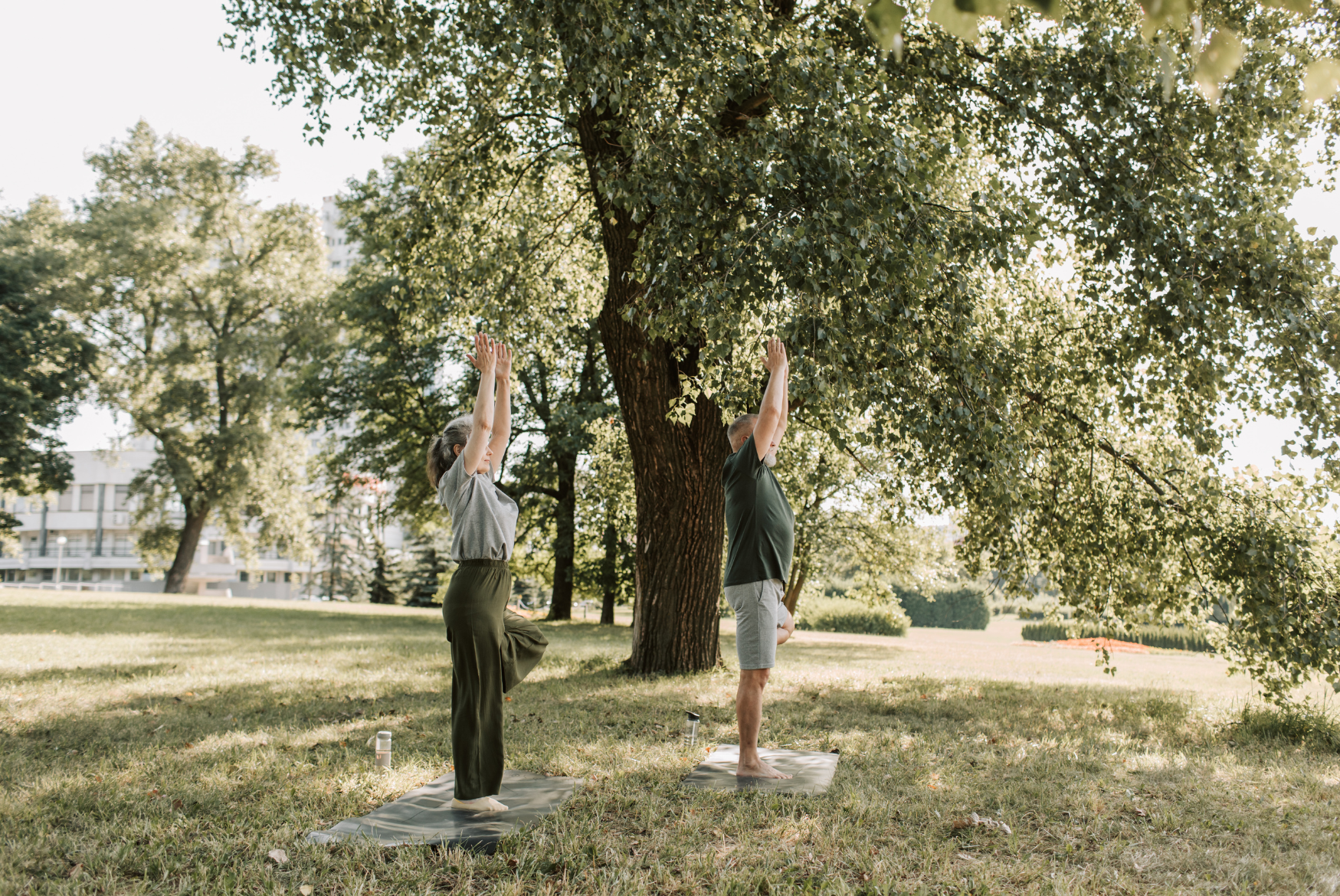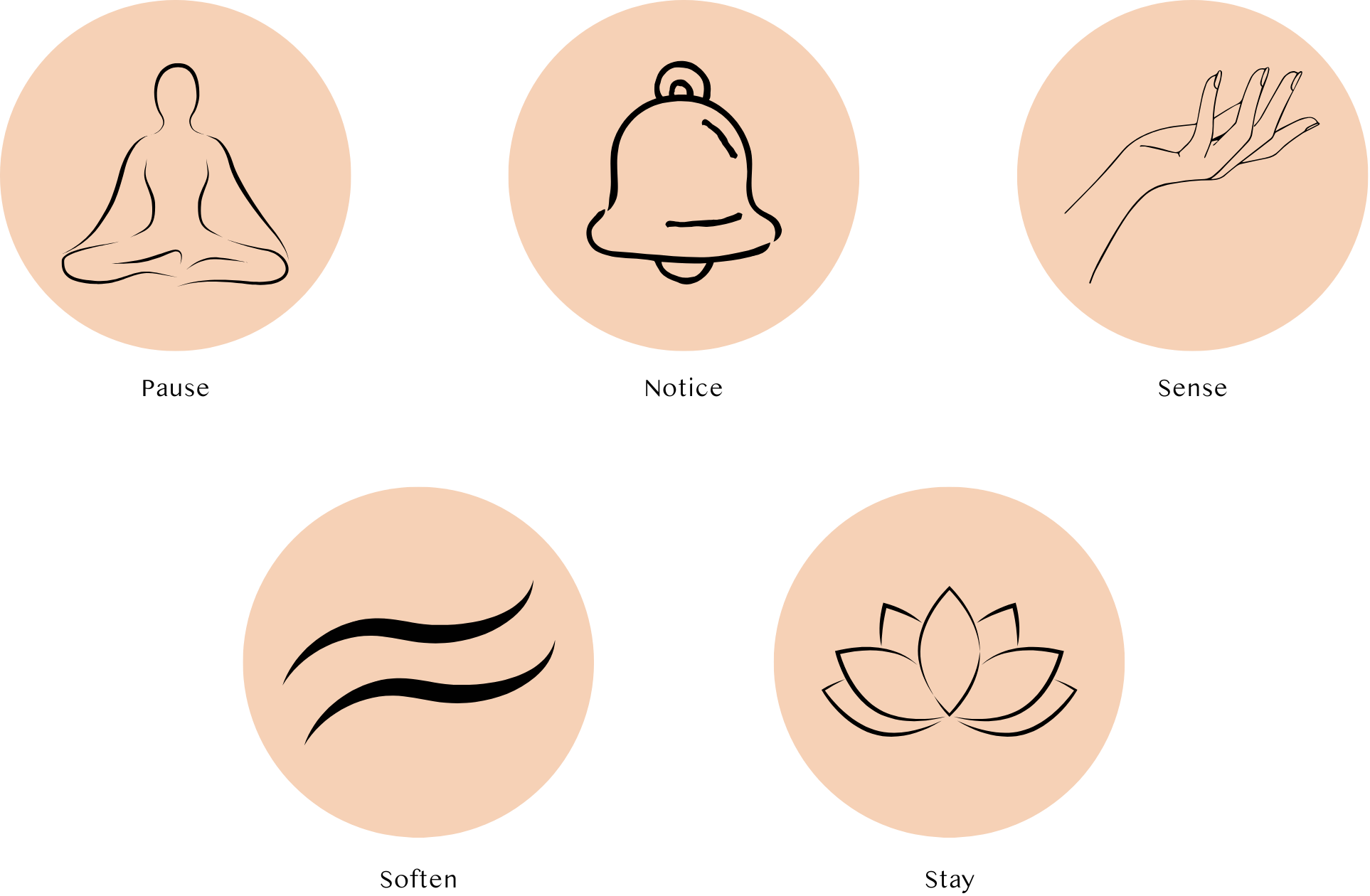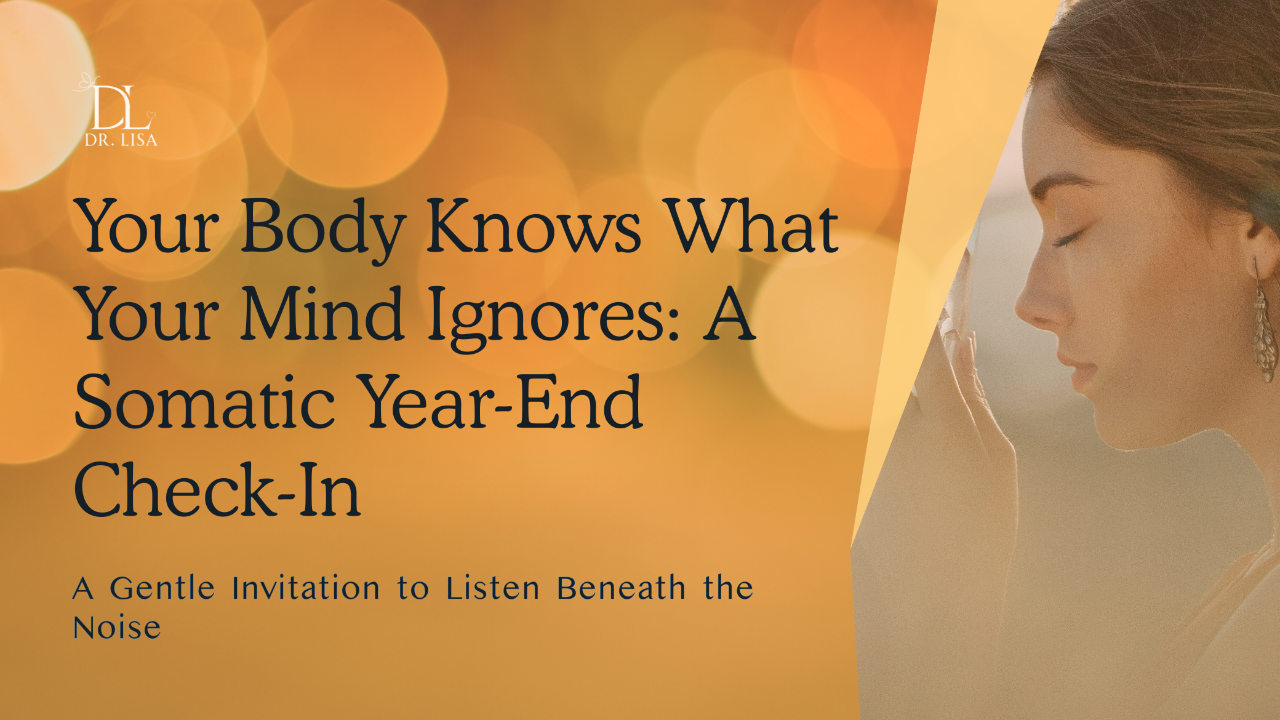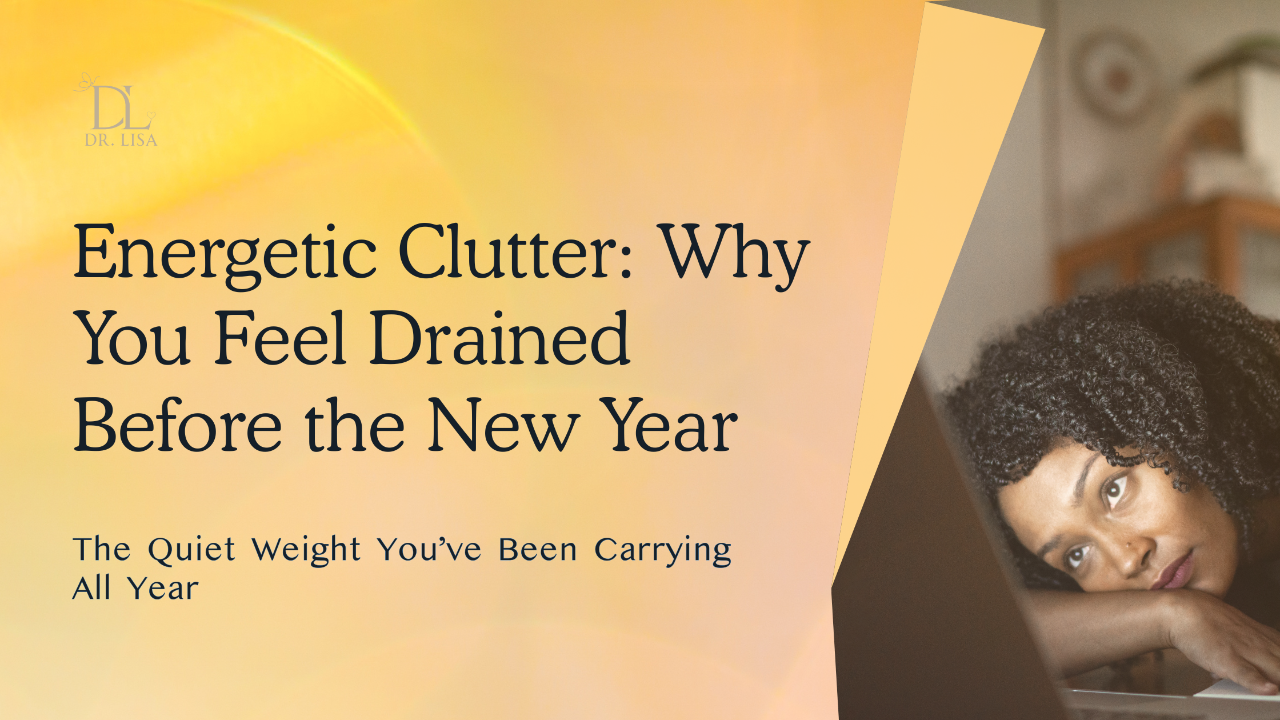
Grounded Gratitude: Healing Through Presence, Not Perfection
Nov 06, 2025Gratitude is one of those words that gets tossed around a lot — especially in November. It fills journals, captions, and coffee mugs. But for many trauma survivors or high-functioning women who’ve lived in survival mode, gratitude can sometimes feel forced, even performative.
You might think, I should be more grateful. I have so much good in my life.
Yet under the surface, your body still feels tense, braced, not quite at ease.
That’s not ingratitude — that’s your nervous system telling the truth.
Gratitude that heals isn’t about performance or perfection. It’s about presence — the quiet return to your body, your breath, your enoughness.

Why Gratitude Can Feel Hard When You’ve Lived in Survival
If you’ve spent years in survival mode, your system learned to scan for danger, not delight.
It’s not that you don’t want to be grateful; it’s that your body’s attention has been wired toward protection.
You might recognize this pattern:
- You accomplish something, but the relief lasts five minutes before your mind moves to the next problem.
- You receive praise but deflect it, thinking, “It’s no big deal.”
- You struggle to rest because stillness feels unsafe.

That’s not a character flaw. It’s neurobiology. When your nervous system has been on guard, joy can feel foreign — even threatening. Gratitude, then, isn’t something you can force from the mind; it’s something that must be felt from the body.
That’s what I call grounded gratitude — the kind that begins not with what you think you should appreciate, but what you can actually sense in this moment.
The Difference Between Grateful Thinking and Embodied Gratitude
Most gratitude practices start in the head: lists, affirmations, reflections. Those can be valuable, but without embodiment, they stay abstract.
Embodied gratitude happens when your body participates. When you feel your feet on the floor while you say “thank you.” When you breathe into the chest that once only braced for impact. When you let the warmth of a simple moment — sunlight, coffee, laughter — register as safety.
This shift matters because the body doesn’t heal from words; it heals from experience.
When gratitude becomes sensory, not conceptual, it literally rewires your nervous system toward regulation and resilience.
You don’t have to “fake it till you make it.” You can feel it till you know it.
A Somatic Practice for Grounded Gratitude
Here’s a short practice I teach when gratitude feels unreachable:
- Pause. Sit or stand comfortably. Feel your feet connect with the floor. Take one slow, full breath.
- Notice. Ask, What in this exact moment supports me? Maybe it’s the chair holding you, the air moving through your lungs, the light in the room.
- Sense. Bring attention to the part of your body that feels most stable. Rest your awareness there.
- Soften. Let your exhale lengthen. Whisper, Thank you.
- Stay. For a few breaths, simply be with the sensation of enoughness — not as an idea, but as a felt reality.
That’s grounded gratitude. No performance. No perfection. Just presence.

The Healing Power of Enoughness
Gratitude isn’t about bypassing pain or pretending you’re fine. It’s about acknowledging both — the ache and the awe — in the same breath.
When you let gratitude and grief coexist, your nervous system learns a new truth: safety doesn’t require control. It can coexist with uncertainty.
This kind of gratitude doesn’t erase trauma, but it transforms your relationship to it. You stop seeing healing as a finish line and start experiencing it as a rhythm — inhale, exhale, receive.
You begin to trust that even when life is imperfect, you can remain present, whole, and grounded.
That’s the real gift of this season.
Gratitude as an Act of Liberation
Gratitude that’s grounded in presence becomes a form of rebellion in a world obsessed with comparison and performance.
It’s saying:
“I can be grateful for this breath, this body, this moment — even if it’s not perfect.”
It’s choosing to celebrate progress instead of punishing yourself for unfinished work.
It’s honoring the body that has carried you through storms and still wakes up willing to heal.
When gratitude shifts from obligation to embodiment, you stop performing goodness and start receiving it.
You deserve ALL good. Not some. Not a few. But ALL good.
And if someone hasn’t told you yet, I love you.
An Invitation to Practice
As we move through November — a month of reflection, gathering, and gratitude — I invite you to pause each day for one moment of embodied appreciation.
Not a list. Not a should. Just one conscious breath of thank you.
Let your body register that safety is possible now.
Let gratitude become not a mindset, but a muscle.
Because gratitude practiced from the ground up isn’t a holiday ritual — it’s a lifelong rewiring toward peace.
If your body is ready to deepen that connection, explore Embrace Your ROAR® or 1:1 sessions — spaces designed to help you heal through presence, not perfection.
What if gratitude wasn’t something you had to find — but something already living in your body, waiting for you to feel it?
Body-Based Healing for the Bold, Brave, and Becoming
Subscribe to Rooted & Rising for thoughtful notes on healing, embodiment, and reclaiming your soul — delivered gently to your inbox. No fluff. Just real, resonant truth.
We hate SPAM. We will never sell your information, for any reason.





